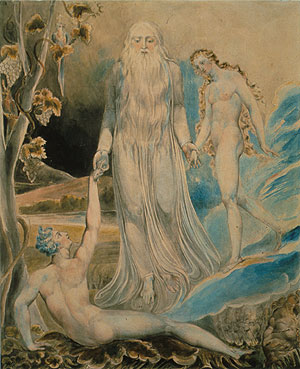Thoughts on Working with a Translator
A few weeks ago I received a random email from a professional translator, Gabriel González Núñez, who had fallen in love with a play I wrote, “In Which Eve Names Everything Else.” It placed second in the 2013 Mormon Lit Blitz contest, and the piece really stuck with Gabriel, who wanted to translate it and publish it to his blog.
I was psyched. That’s pretty awesome to have one of my works translated to another language, and have it available to a whole new set of readers. So of course I gave him permission.
I read Spanish fairly well, so I asked if Gabriel could send me a copy for it before he posted it. From the first read, I loved the translation.
When he sent me the translation, Gabriel mentioned a few of the tough choices he’d had to make. For one thing, in Spanish a word is shared for chipmunk and squirrel. Adam and Eve making a distinction between the two animals makes sense in English, but not in Spanish. I recommended choosing entirely new rodents that look similar, and Gabriel chose hamster/guinea pig (hámster/cuy).
The other problem was my use of the word hangnail. In my play, it’s one of the first things Eve names after leaving the garden. Yet in Spanish the word for hangnail is padrastro, which also means father-in-law. That’s problematic as neither Adam or Eve have a father-in-law, and it would be confusing for readers. Gabriel used the word elbow instead, but he wasn’t happy with it, so I had to think about why I chose hangnail in the first place.
What I realized is that I chose hangnail because it’s a defect in the body, something that couldn’t happen in the Garden of Eden. It’s also foreshadowing for when Cain kills Abel: if you can get a hangnail, you can also die.
When I sent him my thoughts, Gabriel chose the word moretón. It means bruise, and creates a nice, visual imagery. In my honest opinion, it’s is a better word than hangnail. If I were to revise the play in English, I’d probably substitute the word hangnail with the word bruise. It’s more evocative. So it turns out the Spanish version may in fact be better than the original English.
This was a fun experience for me. I know it’s rare for an author to be able to actually go back-and-forth with a translator and talk about meaning, intent, and influence some of the choices being made. And now I can say that my work has been translated to another language.
Read the original play, in English
Read the translation, in Spanish, by Gabriel González Núñez


Leave a Reply
Want to join the discussion?Feel free to contribute!